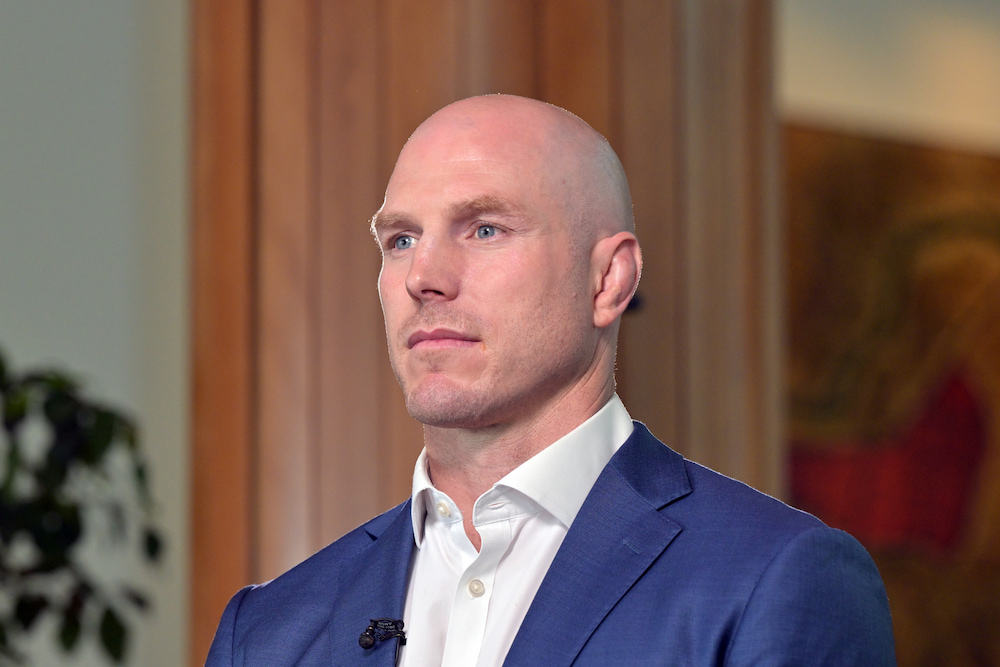Ahead of tomorrow’s federal budget, ACT Independent Senator David Pocock has published a copy of his 52-page submission lodged in February as part of the formal pre-budget process.
The pre-budget submission lists 32 local and national measures – the result of extensive consultation with stakeholders and the ACT community, which identified their priorities for federal government spending, Senator Pocock said.
Senator Pocock said that while people generally appreciated the need for continued efforts to bring down inflation, this had to be balanced against support for those suffering most acutely from the cost-of-living crisis and the need for investment in essential services.
“Canberrans are crystal clear in where they want to see more federal government spending, singling out health, education and housing as the top three,” Senator Pocock said.
“This is no surprise given we have the lowest bulk billing rate (51.5 per cent of all visits) and the highest out of pocket costs in the country (an average of $49 per consultation). Our healthcare system is not delivering for those who most need it. This has to change, and we need a bespoke GP strategy and investment in the ACT to do that.
“Funding for electrification, renewables and climate, and increasing safety net payments came in fourth and fifth on the list.
“People in our bush capital want to see a serious investment in halting species extinction and, to borrow a catchphrase from the PM, they want to make sure no one is left behind.
“This means ensuring that a Future Made in Australia – the Government’s response to the US Inflation Reduction Act – includes things like a substantial investment in household electrification.
“We can’t have a country where renewables are just for the rich.
“The US has just allocated $7 billion to putting solar PV on the roofs of low-income households. We can’t match that scale, but we should match the ambition.
“It also means raising our safety net payments to a rate people can actually live on as the independent expert Economic Inclusion Advisory Committee that I got the government to set up has recommended for the second year running.
“The EIAC report showed that giving this additional assistance wouldn’t drive up inflation, but it will raise the most vulnerable people in our community above the poverty line. The link between poverty, financial distress and the current epidemic of men’s violence has to be addressed.
“Saying we can’t afford to do these things simply won’t fly when the government continually rules out sensible reforms.
“Winding back things like overly generous property tax concessions must be on the table. The manifestly inadequate taxation of our natural resources, particularly offshore gas, also has to be fixed immediately. As a starting point, the Petroleum Resources Rent Tax must be improved so it generates substantial revenue and provides Australians a fair return on the sale of our gas.”
“With this federal Labor Government’s third budget, starting to catch up on a decade of underinvestment in the national capital is also now well overdue.”
A number of Senator Pocock’s pre-budget asks have been announced in the lead up to the budget. His submissions lists eight top investments:
- Locating the new Australian Centre for Disease Control in Canberra
- Funding for City to the Lake and a National Convention Centre and Stadium Precinct
- Investment to improve GP access and affordability in the ACT
- Funding for more active travel infrastructure
- Funding for an Electrify Everything Loans Scheme (EELS)
- Funding for a specialist youth homeless shelter in the ACT
- Set up and fund an Invasive Species Solutions Research Fund
- Reforming the HELP indexation rate
Below is a summary of key priority measures.
| Key national projects | Key local measures | |
| Tax reform (including negative gearing & CGT discount on investment property reform) and Redesigning the Stage Three Tax Cuts | Wipe ACT historic housing debt | Vulnerable Household Energy Support Scheme |
| Income Support Payments – increase base rates + Commonwealth Rent Assistance | Australian Institute of Sport | National Cultural and Collecting Institutions |
| Response to Inflation Reduction Act, including Production Tax Credits and household electrification | Electrification Centre of Excellence | Suburb Zero Electrification Pilot |
| Housing Affordability Double the size of the Housing Australia Future Fund to $20bn Extend the National Rental Affordability Scheme | Funding for a dedicated Youth Homelessness Shelter | CSIRO Ginninderra Land Sale for housing |
| Home Electrification | Frontline Community Services Funding | Multicultural Centre |
| Health (incl. mental health funding) | Canberra-to-Sydney Rail Upgrades | ACT Policing |
| Australian Centre for Disease Control in Canberra | Reinstate the Threatened Species Recovery Hub | Scaleup Funding for Local Companies |
| Aged Care | National Centre for Long-Term Ecological Monitoring | Norfolk Island Knowledge and Learning Centre |
| Invasive Species Solutions Research Fund | Active Travel Infrastructure | UNSW Canberra City Campus |
| Women’s Economic Participation | Yarralumla Wetlands | National Capital Investment Framework, including co-investment in co-located new national convention centre & stadium |
| Australian Institute of Applied Ethics & NationalResearch Institute for Sport Integrity in Canberra | Womens Shed Canberra | |
| Higher Education Reform indexation rate & timing paid places reforming Job Ready Graduates | Community Sport Infrastructure Viking Park Upgrade Indoor Sporting Facilities Field Upgrades ACT Home of Football Aquatic Facilities Gungahlin Tennis Centre | |



